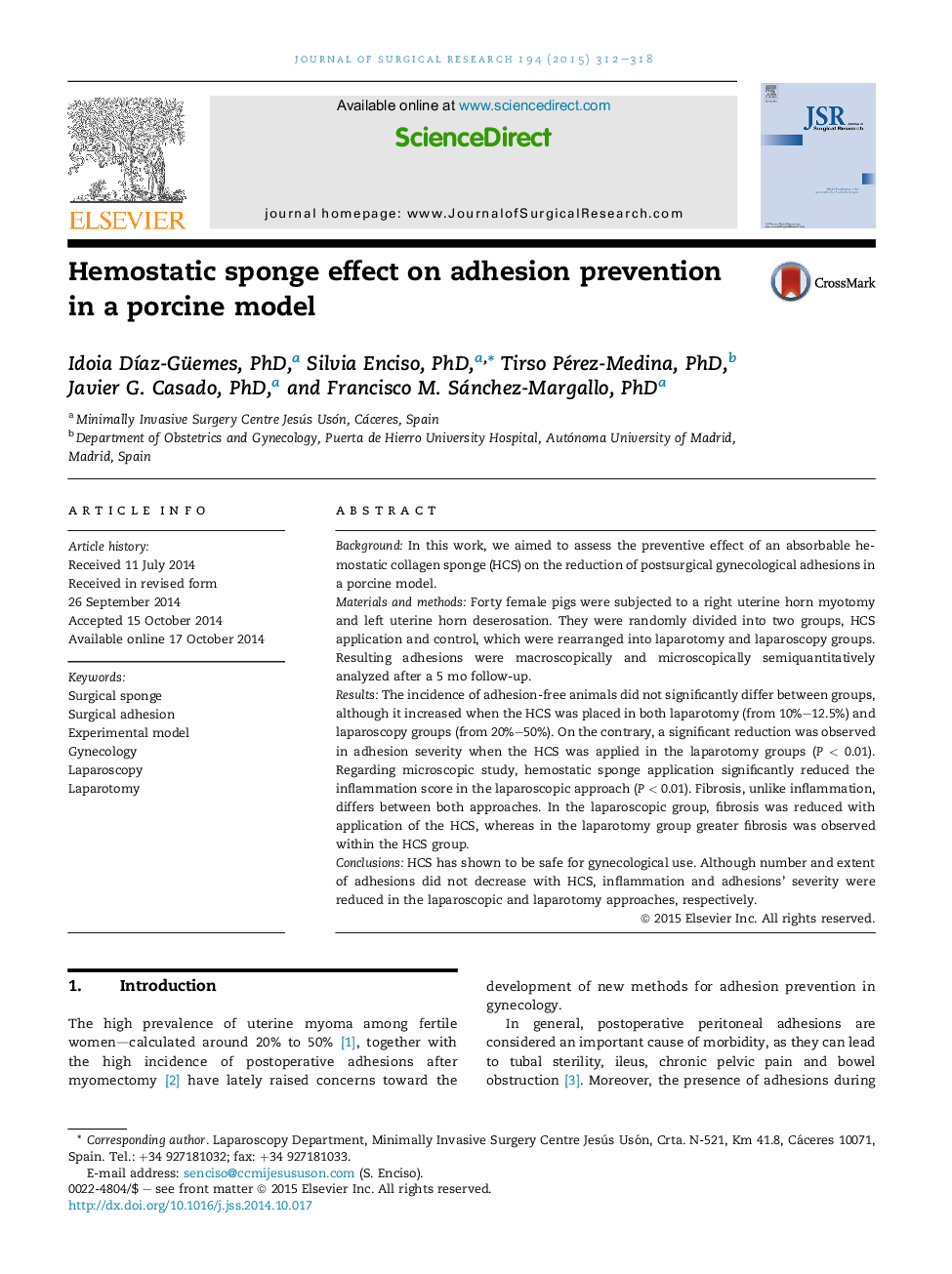| Article ID | Journal | Published Year | Pages | File Type |
|---|---|---|---|---|
| 4299858 | Journal of Surgical Research | 2015 | 7 Pages |
BackgroundIn this work, we aimed to assess the preventive effect of an absorbable hemostatic collagen sponge (HCS) on the reduction of postsurgical gynecological adhesions in a porcine model.Materials and methodsForty female pigs were subjected to a right uterine horn myotomy and left uterine horn deserosation. They were randomly divided into two groups, HCS application and control, which were rearranged into laparotomy and laparoscopy groups. Resulting adhesions were macroscopically and microscopically semiquantitatively analyzed after a 5 mo follow-up.ResultsThe incidence of adhesion-free animals did not significantly differ between groups, although it increased when the HCS was placed in both laparotomy (from 10%–12.5%) and laparoscopy groups (from 20%–50%). On the contrary, a significant reduction was observed in adhesion severity when the HCS was applied in the laparotomy groups (P < 0.01). Regarding microscopic study, hemostatic sponge application significantly reduced the inflammation score in the laparoscopic approach (P < 0.01). Fibrosis, unlike inflammation, differs between both approaches. In the laparoscopic group, fibrosis was reduced with application of the HCS, whereas in the laparotomy group greater fibrosis was observed within the HCS group.ConclusionsHCS has shown to be safe for gynecological use. Although number and extent of adhesions did not decrease with HCS, inflammation and adhesions' severity were reduced in the laparoscopic and laparotomy approaches, respectively.
